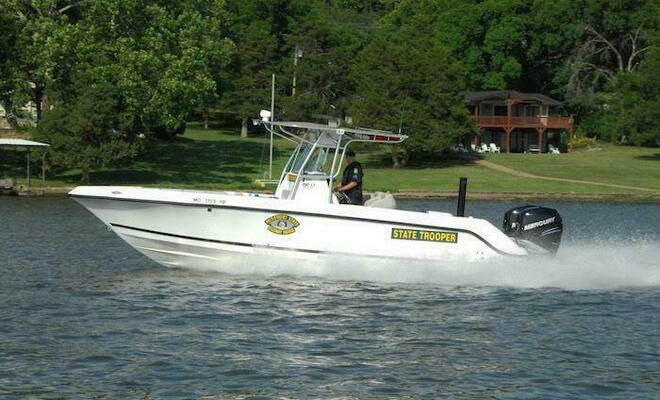Drivers, Boaters Encouraged To Make Smart Decisions

Colonel Eric T. Olson, superintendent of the Missouri State Highway Patrol, wants to remind Missourians that thunderstorms are expected over the next several days which may lead to flooding in certain areas. Flooding, especially flash flooding, is dangerous and can be fatal. Drivers and boaters are encouraged to make smart decisions.
Drivers
Drivers are urged to avoid attempting to cross a flooded low water crossing simply because they were able to do so in the past. Don’t be tempted to drive into floodwater because it appears shallow. Looks are deceiving and the roadway may not be intact. Floodwater often washes out roads or compromises their structural integrity.
Did you know less than a foot of moving water is enough to push a vehicle? Cars will float when the force of the water is greater than the force of friction. Flash flooding brings sand and mud, which reduces the friction force of gravity holding the vehicle in place. Think about everything you could lose before trying to save a few minutes by not turning around.
Barricades closing a roadway are there to protect you. Drivers must respect barriers or barricades put in place by MoDOT — it is extremely dangerous and a violation of state law to drive around them. For information regarding road closures consult the Missouri Department of Transportation’s “MoDOT traveler” app or visit MoDOT’s road condition map at the Missouri State Highway Patrol’s website www.statepatrol.dps.mo.gov. (Select the “Road Conditions” box.) Road conditions can change often with flash floods or heavy rains. The map is updated regularly, but it is not possible to predict future road closings or water levels of specific rivers, lakes, or streams. Drivers are encouraged to check for updates often when planning their route and just prior to traveling.
Boaters
Flooding also affects safety on Missouri's waterways. The Patrol asks boaters across the state to take extra precautions when boating in flooded areas. Large amounts of rainfall cause rivers and lakes to become swollen. Many times, the right decision is to stay off the water. In areas where lakes or rivers spill over the banks, erosion and damage can occur to flooded structures, docks, or water laden levees by boat wakes. Boaters should avoid operating in these areas. If operation in these areas is necessary, boaters should operate at idle speed to avoid causing a wake.
Flooded rivers and streams with moving currents present some of the most dangerous situations a boater can encounter. Fast moving water can easily capsize or flip a boat—or personal watercraft—especially when combined with fixed objects such as trees and buildings. Boaters should avoid any operations in these swift flowing waters.
Please support The Macon County Home Press by subscribing today!
%> "



